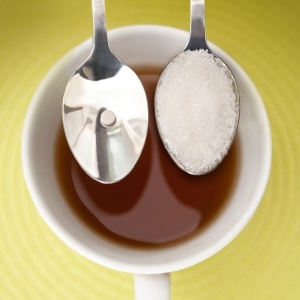
It is a fact that humans like sweet foods. However, the level of sweetness individuals prefer varies from person to person.
This difference can be attributed to the interaction between genetics and environmental exposure (the amount of sweet food and drinks we habitually consume).
Safety concerns
The slimming food industry has developed a variety of non-nutritive or high-intensity artificial sweeteners to satisfy people’s need for sweetness, while at the same offering them a way to cut their energy intake (calories), as sweeteners provide little or no energy.
These sweeteners are frequently used by people with diabetes as they do not affect blood glucose levels the same way as sugar does.
Read: Artificial sweeteners may increase diabetes risk
There are numerous sweeteners on the South African market, the most popular being Sorbitol, Xylitol, Acelfame K, Aspartame, Saccharine, Stevia and Sucralose. Mannitol and Maltitol are used in manufacturing of products and aren’t available as a single sweetener. Manufacturers often use a combination of sweeteners like in the case of cold drinks where a combination of Aspartame, Acelfame K and Sucralose is used.
The main concern for most people, apart from the taste, is the safety of using these sweeteners. This is due to claims of a variety of harmful effects when consuming these sweeteners. These include headaches, increased appetite, weight gain, cancer and cognitive defects such as Attention Deficit Hyperactivity Disorder (ADHD), epilepsy and changes in memory and moods.
Is there any convincing evidence?
The American Academy of Nutrition in 2012 published a position paper on the use of both sugars and sweeteners after reviewing the available evidence and numerous toxicology studies done at the time regarding the health aspects of sweeteners. The Academy reviewed over 129 studies on the effects of sweeteners on people s health. The paper concluded that sweeteners do not cause any harmful effects and recommended that it was safe to consume them in recommended quantities.
Read: How safe are artificial sweeteners?
In the case of consuming aspartame consequent elevated plasma levels of tyrosine and phenylalanine (these are amino acids) also did not cause any harmful effects. This information is consistent with the message promoted by other health bodies around the world, including the American Institute for Cancer Research (AICR) and the European Society for the Study of Diabetes (ESSD).
What's new?
Recent research, however, suggests that consuming particularly sucralose and saccharine may have harmful effects. The researchers say that these specific sweeteners may affect the way our bodies respond to eating carbohydrate-rich foods in the following ways:
1. Sweeteners can interfere with sweet taste receptors in the gastrointestinal tract. This can potentially affect the physiological learned responses that control glucose metabolism, energy intake and the feeling of satiety.
2. Studies have shown that sweetener consumption can affect our ability to metabolise glucose by changing the compositions and number of flora or bacteria in our gastrointestinal tract. These studies have found that some humans were affected by the use of sweeteners, while others’ gut flora stayed unchanged. This means that the mechanism that regulates how we are affected is more complex than initially believed.
The current situation
Good medical research takes time to observe conclusive evidence, and many questions at this stage therefore remain unanswered. We still don’t know if and how sweeteners affect the different areas in the brain responsible for feelings of hunger and satiety. We also don’t understand if sweeteners in beverages (tea/ coffee/ cold drinks) affect us differently when compared to consumption with a meal, or as an ingredient in food.
Read: Confusion about sweeteners
We are also not certain about exactly how much sweetener is considered safe and what amount may cause metabolic problems. Many sweeteners have also not yet been tested in terms of the effect they have on glucose metabolism.
What should we do?
1. Use a variety of sweeteners. Contrary to the current popular belief, there is no evidence proving one sweetener to be better, more natural, or healthier than any other.
2. As far as sugar is concerned, the best advice, as with all sweeteners, is to use it in moderation. Our sweetness threshold increases in accordance with the amount of sugar or sweeteners we consume. The more we consume, the more we may want, and the desire for sweet foods or drinks then becomes a habit.
3. We would all do well to start enjoying foods and beverages without any added sugar or sweeteners. You can start by replacing cool drinks with a jug of water with fresh lemon, mint or cut fruit – it’s delicious. Replace tea and coffee with a variety of herbal teas that can be enjoyed hot or cold with slices of lemon, fresh orange, ginger or mint (without honey, sugar or sweetener).
Read more:
Experts back sweeteners as diet aid
Coke defends safety of aspartame
Added Sugars in Diet Threaten Heart Health
References:
1. Position of the Academy of Nutrition and Dietetics: Use of Nutritive and Non Nutritive sweeteners. J Acad Nutr Diet 2012; 112: 739-758
2. Swithers S Artificial sweeteners produce the counterintuitive effect of inducing metabolic de1rangeents Behav Neuro Sci 2008: 161-173
3. Pepino M, Y Bourne C Non-nutritive sweeteners, energy balance and glucose homeostatic Curr Opin Clin Nutr Metab Care 2011; 14(4):391-395
4. Pepino MY, Tieman CD, Patterson B et al Sucralose affects Glycaemia and Hormonal Responses to an Oral glucose load Diabetes Care 2013; 36; 2530-2535
5. Suez J, Korem T Zeevi D et al Artificial sweeteners induce glucose intolerance by altering the gut microbiota Nature 2014; 514; 181-189




 Publications
Publications
 Partners
Partners














